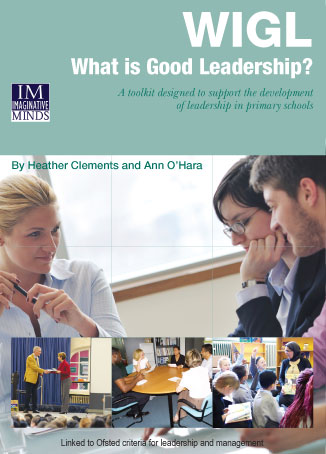The What is Good Leadership? toolkit can be used in a variety of ways to meet the needs of schools and individuals who wish to evaluate and improve the quality of their leadership and management.
The matrix is designed to create a strong visual overview of the quality of leadership and management and uses a ‘best fit’ methodology. Evaluative questions in the left hand column lead the user to identify the statements that best fit their current position. As these are highlighted, a clear picture of the overall quality of their leadership will appear. Key areas of strength emerge and development points can be identified. Upon completion of the matrix, the key strengths and development points can be summarised in the relevant sections at the end of the document.
The matrix supports informed, critical and objective self evaluation, enabling an individual, or a whole school, to formulate their own judgement on the standard of their leadership. There are no absolute numerical values applied as the visual nature of the matrix gives a clear indication to inform the user’s professional judgement. As a rule of thumb, we would advise that at least 70% of any grade should be met to achieve that grade.
WIGL? is written by Heather Clements and Ann O’Hara, both highly experienced educational consultants, who have worked with experts within specific areas to ensure that the descriptors in the toolkit truly represent the best practice nationally for each role identified.
The toolkit is based on core leadership and management skills and attributes. It is tailored to the specific middle and senior leadership roles found in the majority of primary phase schools.
About the Authors
Heather Clements (MSc) trained as a primary teacher in the late 1970s having had an earlier career in fashion retailing. Coming into teaching as a mature student Heather set a 10 year goal for her first headship which she achieved in 1990 to become headteacher of an all through primary school with nursery in Buckinghamshire. After 11 years as a successful headteacher, during which time Heather was seconded to the local authority and mentored several new headteachers, Heather became a primary adviser taking on responsibility for the new primary curriculum.
In this role Heather developed many of the ideas and principles which still underpin her work today. She has a passion for empowering schools to understand and improve themselves and within this for supporting teachers and school leaders in their drive towards achieving outstanding teaching and learning. Heather went on to become Head of School Improvement in Harrow and latterly Director of Schools before becoming an independent consultant in 2011.
The WIGL toolkit has been developed and refined over almost 10 years to the version we have today. It was the subject of Heather’s masters degree research and has been used extensively, tried and tested in three local authorities and has underpinned Heather’s national training for schools
and school leaders.
Ann O’Hara (M.Ed.) has developed a wealth of leadership and management experience from the wide range of challenging roles she has undertaken in over 30 years in education. Deliberately seeking new roles for new learning, she worked with government review bodies as a teacher, began undertaking Ofsted inspections as a deputy head, as headteacher of a primary and alternated periods of leadership in schools with advisory and senior manager roles in local authorities.
Ann has a significant record of bringing about successful whole school improvement and her work continues to receive praise from school leaders, inspection teams and HMI. Through her learning focused approach, she engenders professional dialogue and reflection using educational research and practical school based enquiry. Working with schools to strengthen assessment practices has led to the creation of a range of tried and tested resources that leaders report as having a real impact on teachers and learners.
As an independent adviser since 2010, Ann has worked nationally with schools, local authorities and organisations that specialise in school inspection, excellence in assessment and high quality provision for more able gifted and talented learners. She has written guidance, resources, and articles that have been published by local authorities, to assist leaders in schools, and by national organisations to inform the development and evaluation of best practice.




